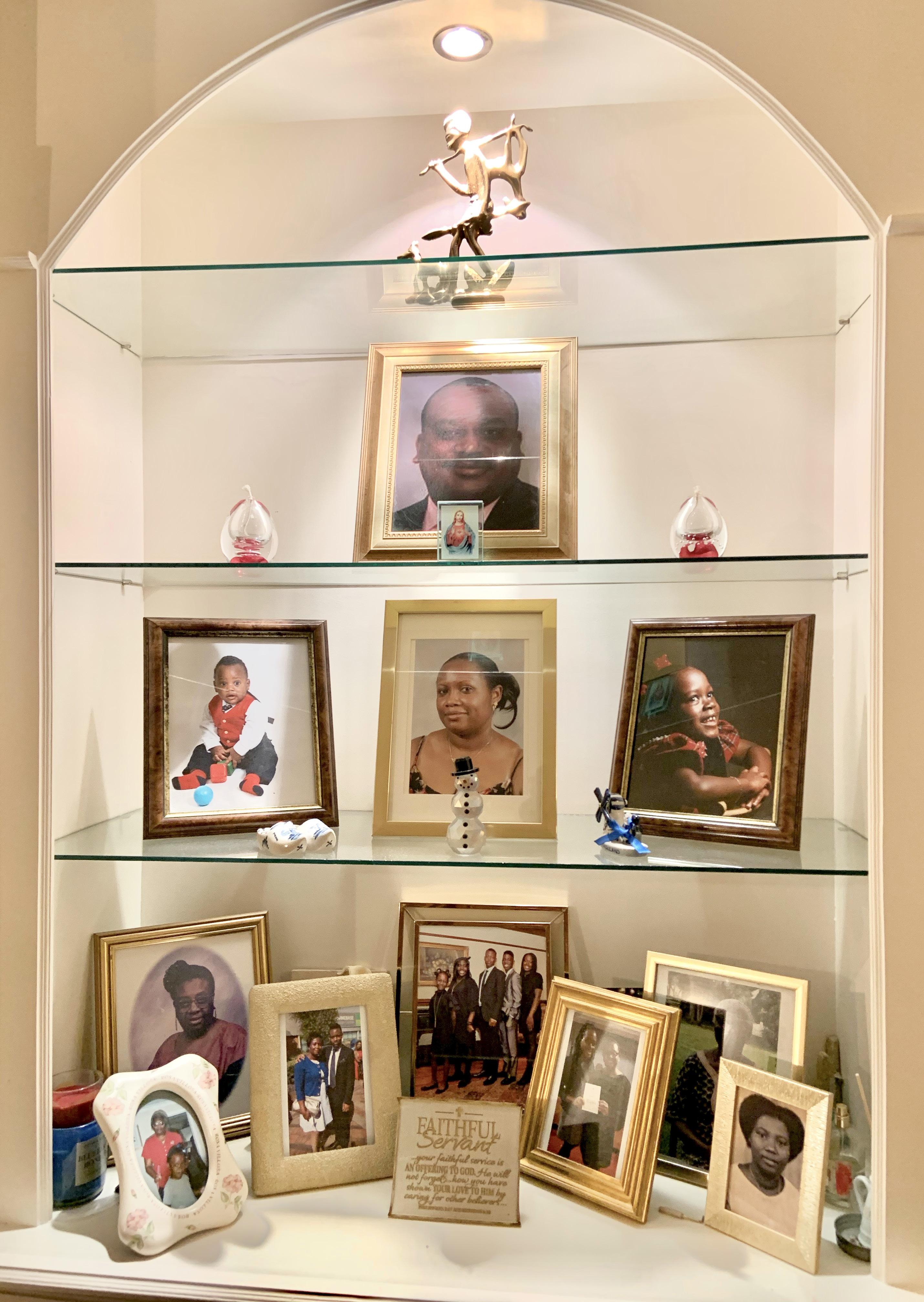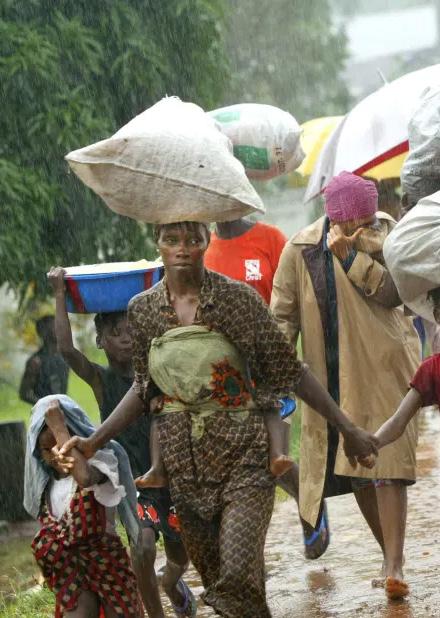THE WAR AND ITS EFFECTS With family, home, and community being a valued part of life in Liberia, I asked my family the question, ‘how did the war effect your community and your home?’ The Liberian civil war brought destruction, separation and irreplaceable loss amongst communities (see Appendix F). It destroyed many lives, friendships, families, neighbours and humanity, and life quickly became a struggle for survival (see Appendix D). Civilians had to disperse and flee from their communities, especially when the war moved into Monrovia (see Appendix B). In 1989 the war began, and Serina, Estelle and Henry were studying at university in Monrovia, Franco was living with his mother at home in Buchanan, and Ortelius was studying in the USSR (see Appendix C). As the war moved into Monrovia, Serina, Estelle and Henry had to quickly leave their university campus and return to their home in Buchanan, which in itself was a high risk, as there was the risk of being killed on their journey. One of their earliest traumatic memories of the war was a house opposite their own being set on fire by the rebels, and the shooting that took place all throughout the night (see Appendix E). Traumatic moments and memories like these are what started to tear apart what they knew as their home, and some of these memories have also resulted in many post-traumatic stress side effects to this day. Liberia was quickly being taken over by rebels who were targeting men to become soldiers, raping women, and killing innocent people. Although their physical home was rapidly changing as it was being destroyed, this was even more of a reason for Liberians to hold on to what they knew to be the idea of home, which for them was their family, values and faith (see Appendix E). Once they reached back home to Buchanan, life was slightly easier, which meant that in the beginning, fortunately for them and their community, they did not have to leave the area or their homes. During this time, my grandmother’s house became a place where they were able to offer help, food and shelter to those who had left their homes and travelled to the next safest county, like those shown in Figure 3, as their own areas had become
09
dangerous to stay in due to the rebels taking them over (see Appendix B). Hollis makes a statement in his book, The Memory Palace, that ‘rooms aren’t just places we go to be alone. They are where we meet one another, and where we live together, not just as friends and intimates, but in wider society too’ (Hollis, 2013, p. 18), and these are the same values that Liberian communities practiced, and that allowed people to open their home up to so many others, especially in a time of need. Due to this, my family’s small home now hosted over 30 people, which was made of up six families that were all escaping the pressures of the war. The house consisted of three bedrooms, a lounge and a dining room; the bedrooms were given to the elders in the house, out of respect, and the younger people had to sleep on the floor wherever they could find a space (see Appendix B). Despite the house now being occupied by more than 30 people, house chores still applied during this time and were still the responsibility of the children in the household. Therefore, tasks such as cooking still had to be done, however, this time on a larger scale, which posed as quite a challenge for Estelle to do. However, as it was their house, and everyone else was a guest, it was still their responsibility to make sure that everyone under their roof was fed (see Appendix E). The girls and the women of the household also had to take on most of the responsibilities of looking after the house themselves, as it was no longer safe for men to travel freely outside their houses to work and make money to support their family. Owing to this, gender roles within the household rapidly began changing, with women being forced to assume the role of the breadwinner. Some women unfortunately were also forced into prostitution or dating wealthy, older men just to support their families, and although they were not targeted to be soldiers like the men were, they were still at risk as they were travelling amongst armed rebels, who at times would stop and kill innocent people (see Appendix E). Luckily for Estelle, who was too afraid to leave the house due to this risk, her mother and godmother, although the elders of the household, would go out to get food, and living close to the coast proved advantageous in easily fishing for fresh produce (see Appendix B).




